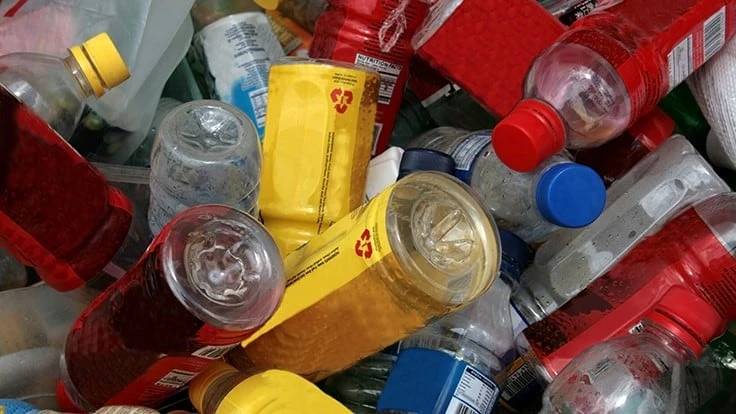
© Jonas Marcos San Luis | Dreamstime.com
U.K.-based plastics recycling organization RECOUP (RECycling of Used Plastics Ltd.) has published its "U.K. Household Plastics Collection Survey." The publication analyzes local authority data for plastics recycling collections alongside material known to be placed on the market. The 2020 survey covers retrospective data from 2019 and demonstrates that up until March of this year the overall recycling rate increased by 2 percent. The collection rate for plastics packaging recycled from April 2019 to March 2020 is 59 percent for bottles; 33 percent for pots, tubs and trays, 7 percent for film and 39 percent for all household plastic packaging.
Up until March of this year, RECOUP says indications were that citizens were still failing to engage with the recycling message, and plastics packaging that could be recycled by local authorities simply was not being collected for recycling. More recent statistics indicate that as more people work from home, home school and travel less, the plastics recycling rate has increased significantly from household collections.
Steve Morgan, RECOUP Policy and Infrastructure manager, says, “Local authorities report an increase in excess of 20 percent of recycling in the first lockdown period, evidence which has been backed up by RECOUP members Veolia who have seen a 10 percent increase in kerbside plastics collected this year. This is a sizable increase on figures from the 2020 RECOUP plastics collection survey report, which showed only a 2 percent increase in collection rates during 2019. With more people being at home, and many changing their ways of working during 2020, initial figures do suggest that when people have the easy access to be able to recycle plastic that they do choose to do the right thing.“
RECOUP says the loss from plastic packaging not collected for recycling in terms of resource value cannot be underestimated. RECOUP Citizen and Stakeholder Engagement Manager Anne Hitch says, “We must not fail to make the most of the opportunity we have been given and continue to engage with citizens to drive recycling rates even further and help them understand how, by doing their bit in their own homes, they are reducing plastic pollution and giving plastic the opportunity to be kept in the loop. It is crucial we make the most of driving sustained behavior change whilst we move onto the ‘new norm.’"
Tim Duret, director of sustainable technology, Veolia UK and Ireland, adds, “2020 has seen a change in our waste flows as people are spending a lot more time at home than previously, and Veolia has seen a 10 percent increase in kerbside plastics collected compared to the year prior. It is clear that people are making an effort to recycle more, with the results from RECOUP showing that we are going in the right direction with plastics recycling growing, we need a larger increase, and we need this faster.”
He continues, "What remains critical is that we back up our environmental responsibility with legislation to create impactful change. The government’s Resources and Waste Strategy and Plastics Packaging Tax will provide the financial drivers for manufacturers to eco-design their products, increasing recycling and simplifying the process, keeping materials in a circular loop. This will also inspire a forecast 10 billion pounds of investment from the waste sector over the next 10 years, allowing for greater innovation and development of domestic infrastructure, which together will increase recycling, reduce carbon emissions, create green jobs and preserve biodiversity.”
The full edition of the survey is available to RECOUP members as of Dec. 7. In line with RECOUP policy, the report will not be available in the open domain until three months after its publication to members.
Latest from Recycling Today
- BMW Group, Encory launch 'direct recycling’ of batteries
- Loom Carbon, RTI International partner to scale textile recycling technology
- Goodwill Industries of West Michigan, American Glass Mosaics partner to divert glass from landfill
- CARI forms federal advocacy partnership
- Monthly packaging papers shipments down in November
- STEEL Act aims to enhance trade enforcement to prevent dumping of steel in the US
- San Francisco schools introduce compostable lunch trays
- Aduro graduates from Shell GameChanger program





